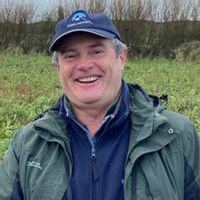Dragonflies are certainly not for the faint-hearted! They are fearsome insects – if you are their size or smaller! They are also dazzlingly beautiful, with a wide array of hues and forms. Our dragonfly tours take you to some of Europe’s top habitats where we have the best chances of witnessing a range of species and their behaviour.
Naturetrek Dragonfly Tours
We like to respond to your specific wildlife interests and, in recent years, we have had an increasing number of requests for dedicated dragonfly holidays. We are pleased to be able to offer a selection of tours which focus on exploring habitats where some of Europe’s most diverse and spectacular dragonfly species are found.
All of our dragonfly tours are accompanied by at least one specialist leader. On some tours there may be a second leader with a different area of natural history expertise. Some highlights of our dragonfly holidays may include: observing clouds of damselflies as they emerge in late spring from pools, watching them hover over a lake or stretch of grassland, or witnessing a fight to the death between territorial males.
We’re equally comfortable providing opportunities for the dedicated enthusiast to debate the finer points of identification with our expert guide, or to simply enjoy their beautiful display of colours and forms.
Speak to Our Dragonfly Specialist

Featured Dragonfly Watching Tours

Our Dragonfly Specialist Recommends
"I’d recommend our Dragonflies of La Brenne & Vienne tour – in June, we can see up to 20 species on a single 'étang', including many non-British species such as Dainty Whiteface and Orange Featherleg. Plus, we travel here from the UK by train, allowing us to enjoy the journey as well as the holiday itself!"
Chris Wilkinson - Operations Manager



 Loading search...
Loading search...











